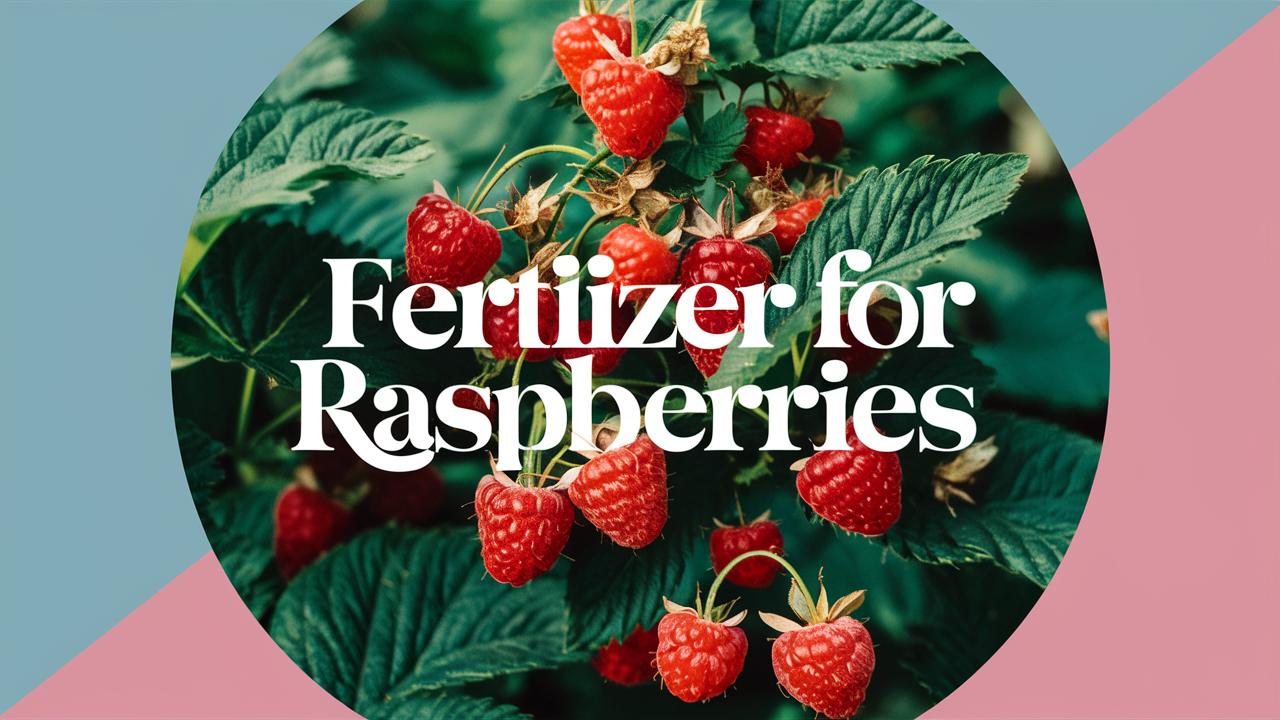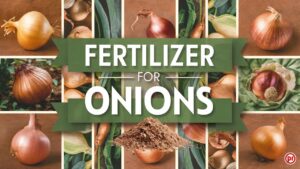In this comprehensive guide, we will explore everything you need to know about choosing the right fertilizer for raspberries
Fertilizer For Raspberries
| Image | Name | Rating | Shop |
|---|---|---|---|
 | Berry-tone |  | |
 | Berry Bloom Plus |  | |
 | Big A Berry Fertilizer |  |
Berry-tone
Raspberries need specific nutrients to produce a bountiful harvest, and that’s whereEspoma Organic Berry-Tone comes in. This fertilizer is specifically designed for berry plants like raspberries, blueberries, strawberries, and blackberries.
Berry-Tone has a rich blend of natural and organic ingredients, including Espoma’s exclusive Bio-tone formula, making it safe to use on your raspberry bushes. The 4-3-4 fertilizer analysis with 5% sulfur provides essential nutrients without any toxic or synthetic additives. Simply apply the fertilizer when planting or feeding established plants, and follow the recommended instructions for best results.
Berry Bloom Plus
Bloom City’s Organic Berry Best is a great option for fertilizing your raspberry plants. It’s an organic formula that promotes lusher growth and increases fruit yield.
This product is perfect for raspberry plants as it not only fertilizes but also helps to acidify the soil, which blueberry plants (and raspberries) love. Additionally, its berry tone organic fertilizer improves overall soil quality, making it a best choice for any berry plant grower. With a quart (32 oz) size, this is a convenient and effective way to keep your raspberry plants healthy and thriving.
Big A Berry Fertilizer
Looking to give your raspberry plants the best nutrients possible? Big A Berries Fertilizer Nutrients is an excellent choice. This fertilizer is specifically designed to promote growth in a variety of berries, including raspberries.
This organic fertilizer is made with premium ingredients and is incredibly versatile, making it suitable for various types of berries. It’s easy to use too, with clear instructions and convenient 13.5oz pouches that make application simple. Whether you’re an experienced gardener or just starting out, Big A Berries Fertilizer Nutrients is a great option to consider.
Raspberry Silica
This liquid silica plant supplement is a great product to help strengthen the stalks of your raspberry plants and prevent them from breaking. The unique formula reinforces plant cell walls, making stems and branches thick and tough.
Not only does it strengthen the stalks, but it also protects delicate leaves from browning and prevents environmental stress from taking toll on your plants. What’s more, the product is highly concentrated and cost-efficient, allowing you to make up to 180 gallons of nutrient-rich solution with just one quart – perfect for indoor and outdoor gardens alike.
Fox Farm Acid Fertilizer for Blueberries
Raspberries are an acidic fruiting plant and therefore may benefit from a specialized fertilizer that caters to their needs. The FoxFarm Happy Frog Acid Loving Plant Fertilizer seems like it could be a good choice for raspberries, as it is formulated specifically for acid-loving plants.
This product’s slow-release formula is also beneficial because it provides consistent nourishment throughout the growing season. Furthermore, its natural ingredients and lack of harsh chemicals make it suitable for organic gardening methods. The fertilizer contains mycorrhizal fungi which help to improve nutrient uptake and water absorption in roots, resulting in healthier root systems and more resilient growth.
True Organic Berry Food
For raspberry growers looking for a reliable and natural way to promote healthy plant growth and abundant harvests, True Organic Berry Food is an excellent choice.
This organic fertilizer is specifically designed for acid-loving plants like raspberries, using a nutrient-rich blend of seabird guano, shrimp and crab shell meal, and sulfur to adjust soil pH naturally. With its easy-to-use formula and versatile application options, True Organic Berry Food can be used for both in-ground and container plants, providing consistent nourishment during the growing season.
How to Choose a Fertilizer for Raspberries
Raspberries are a delightful addition to any garden, producing sweet and luscious fruits that can be enjoyed fresh, in desserts, or even in savory dishes. However, to achieve a bountiful harvest of these delicate berries, it is essential to provide them with the right nutrients. In this comprehensive guide, we will explore everything you need to know about choosing the right fertilizer for raspberries, including their nutritional needs, types of fertilizers available, application methods, and common mistakes to avoid.
Understanding Raspberry Nutritional Needs
Before diving into fertilizers, it’s important to understand what raspberries require to grow successfully. Raspberries are perennial plants that thrive in well-draining, nutrient-rich soil. Their primary nutritional needs include macronutrients (nitrogen, phosphorus, and potassium) and micronutrients (like iron, magnesium, and calcium).
Nitrogen (N): Essential for leaf and stem growth, nitrogen promotes lush foliage, which is vital for photosynthesis and overall plant health. Raspberries benefit from nitrogen, especially in the early stages of growth. Too much nitrogen, however, can lead to excessive leaf growth at the expense of fruit production, so moderation is key.
Phosphorus (P): This nutrient is crucial for root development and flower formation. Phosphorus helps raspberries establish a strong root system, which is particularly important during their initial growth phase. It also plays a significant role in the fruiting stage, ensuring that the plants produce plentiful and high-quality berries.
Potassium (K): Potassium helps regulate water balance in plants and is essential for fruit development. It enhances ripening, improves resistance to diseases, and contributes to the overall flavor and quality of the berries. Adequate potassium levels are critical for achieving a vibrant and sweet harvest.
Micronutrients: Though needed in smaller quantities, micronutrients like iron, magnesium, and calcium are vital to the healthy growth of raspberries. Iron is essential for chlorophyll production, while magnesium acts as a key player in photosynthesis. Calcium supports cell wall structure and overall growth. A balanced fertilizer that includes these micronutrients will help bolster plant health.
Assessing Soil Quality
Before you select a fertilizer, it is crucial to assess the quality of your soil. The current nutrient levels in your soil can greatly influence your choice of fertilizer. A soil test is the best way to get precise information about nutrient content, pH levels, and overall soil health. Here’s how you can assess your soil quality:
Conduct a Soil Test: A soil test kit can typically be purchased from garden centers or agricultural extensions. Follow the instructions to collect samples from various spots in your garden and send them to a lab for analysis. They will provide you with a report detailing nutrient levels and pH, which will inform your fertilization strategy.
Check pH Levels: Raspberries prefer slightly acidic to neutral soil, with a pH between 5.5 and 6.5. If the soil is too acidic or alkaline, it can hinder nutrient absorption. Amend the soil accordingly with lime to raise pH or sulfur to lower it, depending on your soil test results.
Evaluate Soil Texture: The texture of your soil (sandy, loamy, or clay) affects its ability to retain nutrients and water. Good-quality raspberry soil should drain well but also hold enough moisture. If you have sandy soil, you may need to add organic matter to improve its nutrient-holding capacity. Conversely, if clay is your primary soil type, ensure that it’s well-aerated to prevent root rot.
Types of Fertilizers
Once you have an understanding of your soil’s nutrient profile, it’s time to explore the different types of fertilizers available for raspberries. There are several options, each with its own benefits and drawbacks:
1. Organic Fertilizers
Organic fertilizers are derived from natural sources and promote long-term soil health. They improve soil structure and encourage beneficial microorganisms that aid in nutrient uptake.
Compost: Compost is rich in nutrients and beneficial microbes. Incorporating well-decomposed compost into the soil before planting can provide a slow release of nutrients throughout the growing season.
Manure: Aged manure from goats, cows, or chickens is an excellent organic option. It’s important to use well-composted manure to avoid introducing pathogens and to prevent burning the plants.
Bone Meal: High in phosphorus, bone meal promotes healthy root development and flowering. It can be particularly beneficial in the early stages of raspberry growth.
Fish Emulsion: Fish emulsion is a liquid organic fertilizer that provides a quick nutrient boost, rich in nitrogen. Use it sparingly to avoid over-fertilizing.
2. Synthetic Fertilizers
Synthetic or chemical fertilizers are formulated to provide specific nutrient ratios. They are often faster-acting than organic options but may not improve soil health in the long run.
NPK Blends: Look for balanced NPK blends with a ratio suited to raspberries, such as 10-10-10 or 5-10-10, depending on your soil’s existing nutrient levels.
Water-Soluble Fertilizers: These are quick-release fertilizers that can be mixed with water for easy application. They are effective for adding nutrients during the active growing season but require more frequent application.
3. Slow-Release Fertilizers
Slow-release fertilizers provide a steady supply of nutrients over an extended period, reducing the need for frequent applications. They are often coated in a material that allows for gradual nutrient release as moisture penetrates the coating.
Granular Fertilizers: Many granular slow-release fertilizers are available in formulations suitable for berries. This option can be particularly helpful in summer when raspberries are fruiting.
Application Timing
The timing of fertilizer application is crucial for maximizing its effectiveness. Generally, there are key stages in the raspberry growth cycle when fertilizing is most beneficial:
Early Spring: Just as new growth begins, applying a balanced fertilizer or organic amendment will kickstart the plants after winter dormancy. This is the time for nitrogen to promote healthy leaf and stem growth.
Pre-Flowering: As buds start to form, consider a phosphorus-rich fertilizer. This stage is essential for encouraging robust flowering, which leads to fruit set.
Post-Harvest: If you’re growing summer-bearing raspberries, a light application of fertilizer after the harvest can help prepare the plants for the next growing season. This is less critical for everbearing varieties since they will continue to produce fruit.
Fall (For Pre-Planting): For new planting, apply a slow-release fertilizer or well-aged manure in the fall to allow nutrients to integrate into the soil over the winter months, providing robust spring growth.
Application Methods
Understanding how to apply fertilizer correctly can impact its effectiveness and the health of your raspberry plants:
Broadcasting: This method involves evenly spreading the fertilizer granules over the soil surface. It’s suitable for granular fertilizers and should be followed by watering to help dissolve the nutrients into the soil.
Incorporating into Soil: For new plantings, mixing fertilizer into the planting hole or the planting area helps ensure the roots have direct access to nutrients right from the start.
Liquid Feeding: For quick absorption, applying liquid fertilizers through watering can be effective. This method is particularly useful during the growing season when plants might show signs of nutrient deficiency.
Side-Dressing: For established plants, applying fertilizers in a band along the row, several inches away from the plant base, can help provide nutrients without disturbing the roots.
Signs of Nutrient Deficiencies
Understanding the signs of nutrient deficiencies can help you adjust your fertilization strategy accordingly. Here are some common symptoms to watch for in raspberries:
Yellowing Leaves: This often indicates nitrogen deficiency, where older leaves turn yellow and new growth may be stunted. Supplement with a nitrogen-rich fertilizer.
Poor Fruit Set: If plants flower but fail to produce fruit, they may be lacking phosphorus. Consider a boost of phosphorus to invigorate fruit development.
Weak Root Development: Brown, brittle roots may signal a lack of potassium. Increasing potassium levels through balanced fertilizers can improve root health and fruit quality.
Leaf Curling or Marginal Browning: These signs can indicate a magnesium deficiency. Adding a magnesium supplement such as Epsom salt can alleviate this issue.
Common Mistakes to Avoid
As with any aspect of gardening, there are common pitfalls to avoid when fertilizing raspberries:
Over-Fertilization: Excessive fertilizer, especially nitrogen, can lead to lush foliage with little fruit yield. Always follow package instructions and conduct soil tests to avoid this.
Ignoring Soil Health: Relying solely on chemical fertilizers can lead to depleted soil health over time. Consider alternating with organic amendments to maintain a healthy ecosystem in your garden.
One-Size-Fits-All Approach: Different raspberry varieties have different needs, and local soil conditions can vary. Customizing your fertilizer approach based on your specific plants, soil type, and local climate ensures better outcomes.
Timing Issues: Applying fertilizer at the wrong stage of plant growth can stunt growth or cause lush foliage without fruitful results. Pay attention to growth stages and adapt your feeding schedule accordingly.
Final Thoughts: Cultivating Healthy Raspberries
Choosing the right fertilizer for raspberries is a balance of understanding plant needs, assessing soil conditions, and timing applications properly. By following these guidelines, you can foster a thriving raspberry patch that yields delicious fruit season after season.








